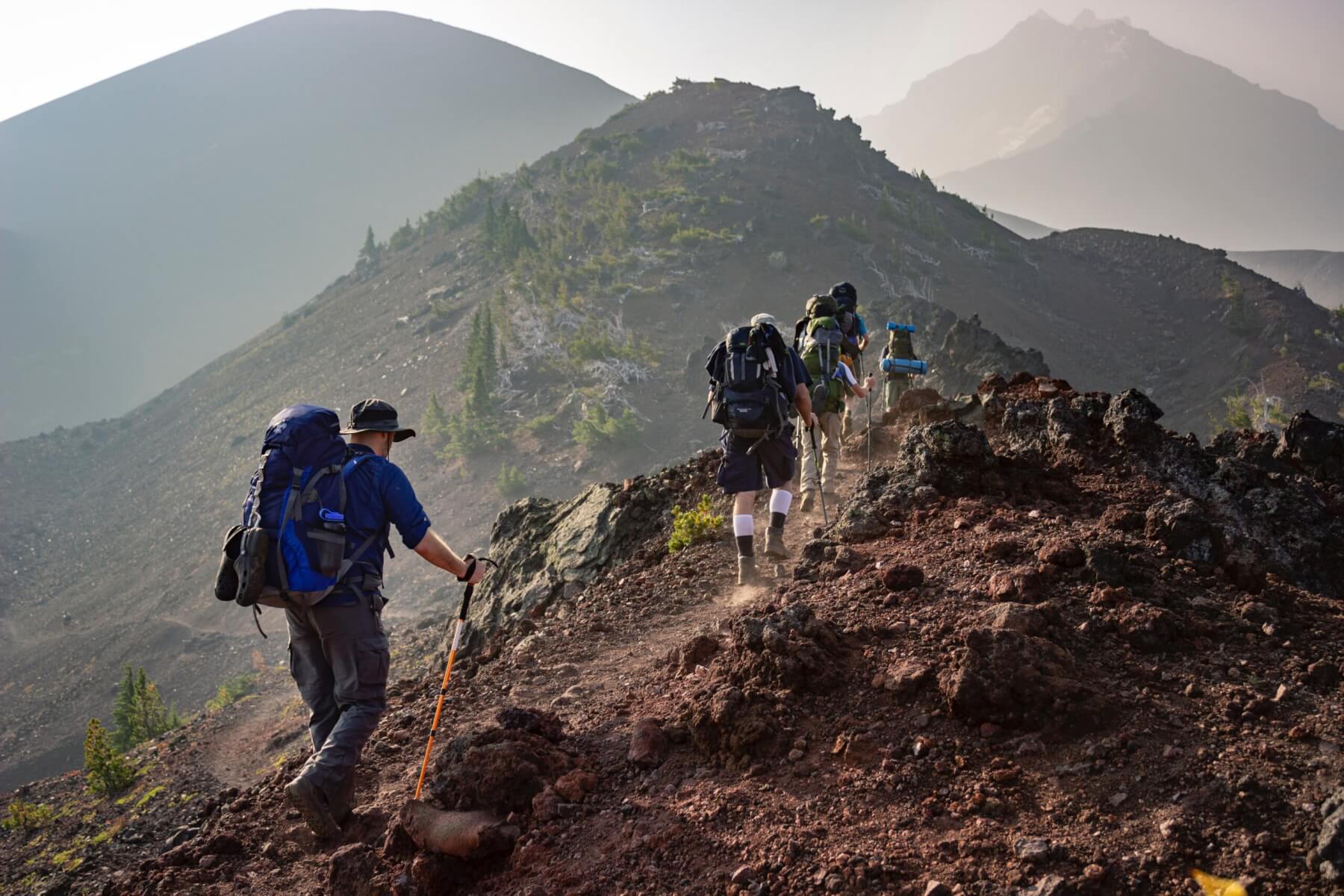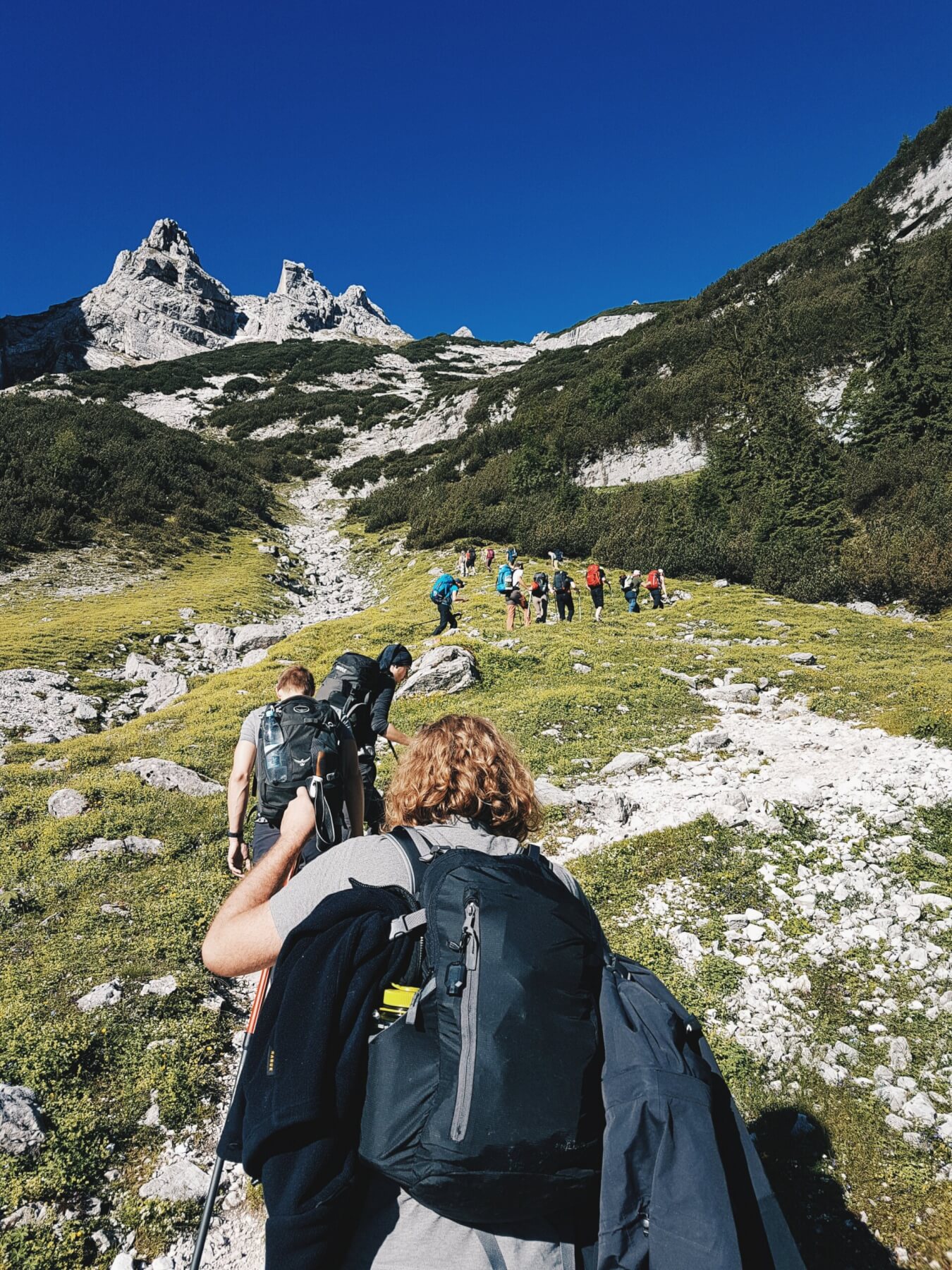
Mountaineering can be a dangerous pastime if you are not well prepared. Photo by Eric Sanman.

Janine Krippner
In light of recent news reports of hikers being rescued from the Tongariro/Ngāuruhoe volcanic complex, I hope it will help to share how I get ready for fieldwork as a volcanologist.
Seeing hikers who are wearing street clothes and shoes summiting an alpine volcano really grabs the attention of those of us who take care to make sure we are prepared to not only keep ourselves safe, but to hopefully prevent anyone having to risk their own safety to rescue us if we do an insufficient job. Unexpected things like broken ankles do happen, but plenty of cases are preventable. There are far more of these rescues than what ends up in the media.
I want to be clear here, volcanoes like Ruapehu, Tongariro, and Taranaki are dangerous environments with or without volcanic activity. The weather can change rapidly to conditions where our bodies are not equipped to stay alive for extended periods. The risk of rockfalls is present when you have slopes, and people accidentally dislodging rocks above you can lead to high-speed, heavy projectiles hurtling towards your relatively fragile self. The loose rocks can be slippery and unstable underfoot. There is the risk of avalanches and ice in winter. There also is the risk of phreatic (steam-driven) eruptions that may not give any warning. Volcanologists take all these risks seriously; we know all the ways people die and are injured on volcanoes.
I climbed Ngāuruhoe earlier this year for fieldwork (with the right permissions) after increasing my physical training for about 3-4 months. My training focuses on general increased fitness, strength, and a lot of climbing up and down hills. I do have additional challenges having Ehlers-Danlos syndrome, but I wouldn’t train any less if I didn’t. I want to not only be safe, but to enjoy the experience.
A colleague who rescues people off the mountains brought up a great point recently – would you run or walk a 21.1 km half-marathon with no training? The Tongariro Alpine Crossing length is 19.4 km. Would you climb the Auckland sky tower without any training? The height of the tower is 328 m and the elevation of the Devil’s Staircase is about 350 m alone, whereas the total change in elevation if you’re doing the crossing is about 800 m. Are you comfortable exercising for the 6-8 hours it takes to complete? It is no longer advised to climb Ngāuruhoe.
In my pack I take plenty of food, about three litres of water, extra warm and waterproof layers (even in summer), gloves, a phone with backup battery pack, spare laces for my sturdy and worn-in hiking boots, extra socks, a bag for rubbish, any medications, a first aid kit, sunscreen, a torch and batteries or headlamp, a whistle (in case you need to get attention), and a survival blanket. I wear long field pants and a hat. Importantly, I tell people where I am and when I expect to be back, communicating along the way.
Once you are prepared, go to the GeoNet website to check on any changes in volcanic activity and always check the weather forecast before you head out. The Department of Conservation has more information and warnings, along with a guide for what to pack.
Keep in mind that when things go wrong for people, they probably didn’t think that it would happen to them.

Group of people hiking. Photo by Ben Maxwell.








